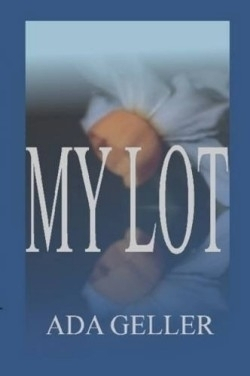My Lot
Poet Ada Geller has compiled an old-fashioned, dolorous collection of fifty poems in My Lot. The dominant theme here is one of longing; for the happiness of youth, for Edenic visions of nature, and for bittersweet memories of departed relatives and friends. This philosophical, regret-tinged compilation makes for depressing reading, but there are a few notable sparks of hope and celebrations of the joy of self-expression which expand the range and audience for Geller’s verse.
“Oranges” is one such poem; it shimmers through the crowd of lamentations with its descriptions of the simple pleasure of tucking into fruit on a hot summer day. Similarly, “Books,” an ode to the transportive powers of reading, is sonorous and a welcome break from the doldrums of the remaining poems.
Most of Geller’s work employs four-line stanzas, though her rhyming technique is often inconsistent. She is as apt to rhyme couplets as she is to employ alternate rhyme. The length of her lines often accelerates as the stanza progresses, so that final lines are overstuffed with extra words awkwardly shoehorned in, as in this example from “Refuge”:
In its splendor I still revel
By its luster I am overcome, leveled
Mesmerized by its allure, made to surrender
To its glowing colors that a life-prisoner me render
By reading the poems, we learn that Geller is the daughter of Jewish refugees who escaped Poland during the Holocaust. This fact might attract potential readers who would otherwise pass on this volume, and certainly a short author biography on the back cover or on a front flyleaf would be useful for this goal. Similarly, the computer-generated daffodil cover art doesn’t do much to enhance the presentation of Geller’s poems. A vintage photograph of the author or her relatives would better evoke the spirit of her writing.
There are interesting, wistful themes in My Lot, and many intriguing examples of self-examination, but the lack of range in tone and poetic form make this book a monotonous march. In its current form it is difficult to imagine a wider audience for Geller’s collection than her own personal circle.
Disclosure: This article is not an endorsement, but a review. The publisher of this book provided free copies of the book and paid a small fee to have their book reviewed by a professional reviewer. Foreword Reviews and Clarion Reviews make no guarantee that the publisher will receive a positive review. Foreword Magazine, Inc. is disclosing this in accordance with the Federal Trade Commission’s 16 CFR, Part 255.

